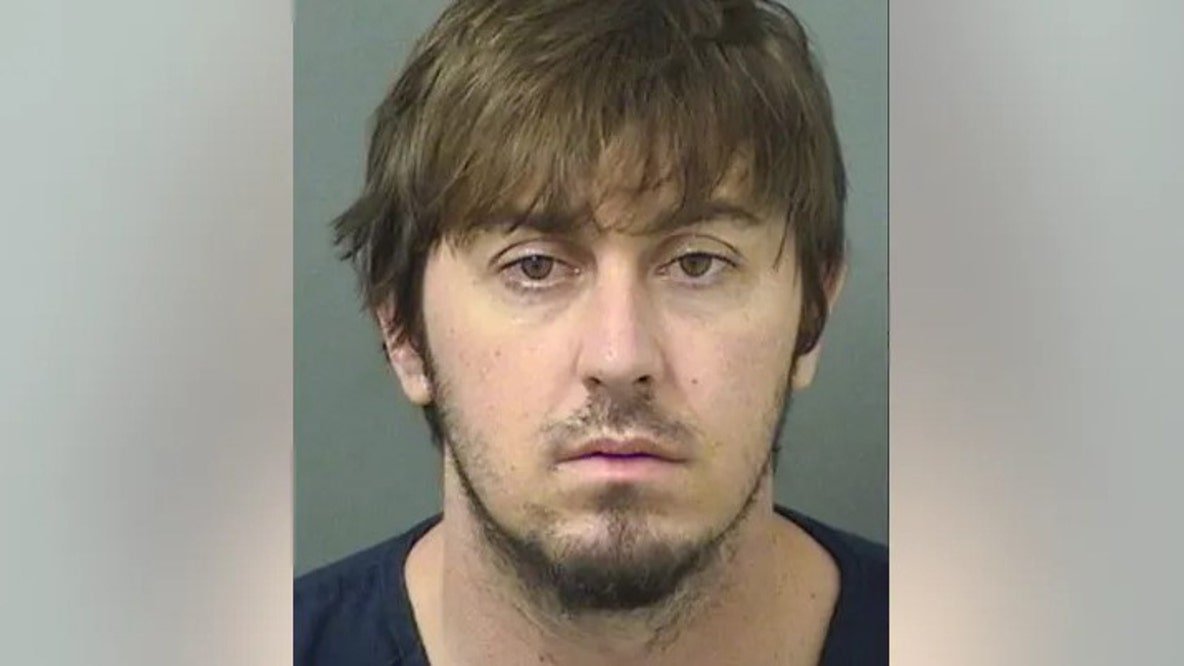
A Florida man has reportedly made alarming threats in 911 calls, claiming he intends to assassinate former President Donald Trump and destroy New York City using missiles. The disturbing language from these calls, revealed in an exclusive report, has raised serious national security concerns. In this article, we will analyze the details of these threats, explore the possible motivations behind them, and examine how law enforcement agencies are handling this grave situation.
The Shocking 911 Calls That Put Everything at Stake
Over several weeks, the Florida man made multiple 911 calls, in which he threatened both the former president and the city of New York. The nature of these threats was so concerning that local and federal authorities were immediately placed on high alert.
The Content of the Threats
In these chilling calls, the man allegedly outlined his plans to assassinate Donald Trump, stating he would “take him out” and identifying the former president as his main target. The threats escalated further, with the man claiming he had the ability to launch missiles, promising to destroy critical parts of New York City.
- Threats to Assassinate: In one call, the man reportedly detailed his intention to murder Trump, expressing intense hatred toward the former president.
- Terrorism Threats Against New York: The man claimed to possess missiles (which authorities believe to be false), vowing to target key infrastructure, resulting in widespread destruction across New York City.
- Erratic Behavior: The man’s calls displayed erratic behavior, including anger and delusional beliefs, which led authorities to suspect significant mental health issues.
These 911 calls have been confirmed by authorities, who are now investigating the credibility of the threats and assessing whether there is any immediate danger to the victims involved.
How Law Enforcement Is Responding
Due to the high-profile nature of the threats, multiple law enforcement agencies are collaborating to investigate the situation. The FBI, in coordination with the Secret Service and local law enforcement, has launched a full investigation to ensure the safety of both former President Trump and the residents of New York City.
Secret Service’s Role
As the agency tasked with protecting former presidents, the Secret Service has taken the lead in securing Trump’s safety. The service has been in close contact with the FBI to monitor potential threats and implement preventive measures.
- Enhancing Security: The Secret Service has reportedly intensified protection at multiple locations related to Trump’s movements and activities, ensuring that any potential threats are neutralized before being carried out.
- Threat Assessment: Secret Service agents and analysts are closely scrutinizing the nature of the threats to determine if they pose an immediate risk.
FBI Involvement
The FBI has also become heavily involved, as there is a potential terrorism element in the threat to destroy New York City with missiles. Experts agree that any threat to the public safety of a major city is treated as the highest priority by federal agencies.
- National Threat Assessment: The FBI is investigating whether the Florida man has any connections to larger extremist groups or movements, though no such connections have been confirmed.
- Collaboration with Local Authorities: Local police and state agencies have also been enlisted to assist in the investigation, ensuring that all potential avenues are explored.
Understanding the Psychology Behind the Threats
While the specific details of the case are still emerging, psychologists have already begun to explore the mental health factors that may have influenced the man’s behavior. The nature of the threats, particularly the mention of assassination and missile attacks, suggests a troubled mind affected by anger, delusion, or both.
Possible Mental Health Factors
Psychologists argue that individuals who make such extreme threats are often struggling with mental health disorders, ranging from paranoia to severe depression or psychosis. In this case, it appears that a combination of personal grievances and delusional thinking may have led the Florida man to believe that committing these violent acts was justified.
- Delusional Thoughts: Dr. Michael Sullivan, a forensic psychiatrist, suggests that those who make such threats often exhibit paranoid and delusional behavior, believing that their violent acts are part of a righteous cause.
- Political Extremism: Some experts also argue that the threats could be motivated by extreme political ideologies, with the Florida man possibly harboring deep resentment towards Trump and New York City.
National Security Implications: Is the U.S. Prepared?
These disturbing threats raise critical questions about the U.S. government’s preparedness in addressing cases of domestic extremism. While traditional national security concerns have primarily focused on terrorism linked to foreign threats, incidents like this highlight the increasing risks posed by homegrown violence and radicalized individuals.
How the U.S. Responds to Domestic Terrorism Threats
Following the 9/11 attacks, the U.S. government implemented several preventive measures to counter terrorism. However, the growing concern over domestic terrorism, fueled by political extremism and a mental health crisis, is now at the forefront of national security discussions.
- Intelligence Gathering: U.S. agencies have significantly improved their ability to gather intelligence on both foreign and domestic threats. However, experts argue that more needs to be done to identify individuals at risk of committing violence before they take action.
- Responding to Lone Actors: Security agencies are adjusting their protocols to address threats posed by lone actors—individuals who may not be tied to organized extremist groups but still present a significant danger.
Protecting New York City: A Vulnerable Target
As one of the most iconic and economically significant cities in the world, New York City is often targeted by those seeking to make a statement. Its dense population, prominent landmarks, and importance on the global stage make it a prime target for extremist attacks. Despite the advanced security infrastructure in place, the complexity of these threats underscores the need for constant vigilance.
- Enhanced Monitoring: Security measures in New York City have been intensified, with increased surveillance of key locations, including government buildings, transportation hubs, and tourist attractions to prevent any potential attacks.
- Emergency Response Plans: In the event of an attack, New York’s emergency response teams are well-prepared, but the possibility of missile attacks raises concerns about how to defend against such advanced weaponry.
The Florida Man Faces Legal Consequences
Making threats against a former president and a major city is not only immoral but also illegal. If the Florida man’s threats are found to be credible and actionable, he could face severe legal consequences.
Federal and State Charges
Threatening to harm a public official, including a former president, is a federal crime in the United States. Anyone convicted of making such threats could face up to five years in prison and substantial fines.
- Penalties for Threatening a Former President: Under U.S. law, threatening a former president carries a maximum sentence of five years in prison and large fines.
- Terrorism Charges: If the Florida man is found to have plotted an attack on New York City using missiles or other forms of mass destruction, he could face terrorism charges, which carry a minimum sentence of 20 years in prison.
What Does This Mean for Future Security?
This disturbing case serves as a powerful reminder of the need to stay vigilant against potential domestic terror attacks, especially in an age where political extremism and violence are becoming increasingly intertwined. Experts agree that the United States must continue to strengthen its security measures to protect both public figures and ordinary citizens from such violence.
Mental Health and Violent Extremism Prevention
One critical aspect of preventing violent behavior is addressing mental health issues. Experts believe that early intervention and access to mental health services can play a significant role in preventing individuals from resorting to violence.
Conclusion
The recent 911 calls made by a Florida man threatening to assassinate Donald Trump and destroy New York City with missiles have sparked serious debates surrounding national security, extremist ideologies, and the mental health crisis in the U.S. As law enforcement agencies continue their investigations, it is clear that this case represents a larger issue of domestic threats that must be addressed with greater urgency. How security agencies respond—and how the legal system handles this case—will be crucial in protecting the public and preventing further violence.
FAQs
1. What happens if you threaten a former president?
Making threats against a former president is a federal offense, punishable by up to five years in prison and significant fines. If additional crimes such as terrorism or weapon possession are involved, the penalties can be much harsher.
2. How does the FBI handle threats like these?
The FBI works with local and state law enforcement to investigate threats, collect intelligence, and take preemptive action to prevent any violence from occurring.
3. How does the Secret Service protect former presidents?
The Secret Service provides 24/7 protection to former presidents, including monitoring potential threats, coordinating with local law enforcement, and implementing security measures to ensure their safety.
4. What role does mental health play in such violent threats?
Delusional thinking and **






